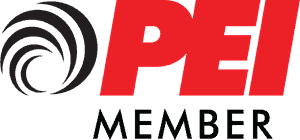Resources
Home / Resources
Quick Find:
Retail Products
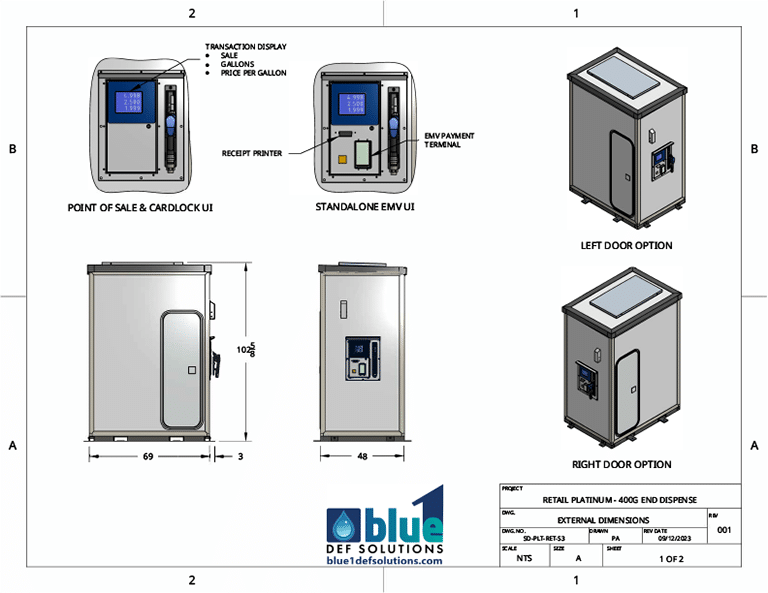
Retail Platinum – 400g End Dispense
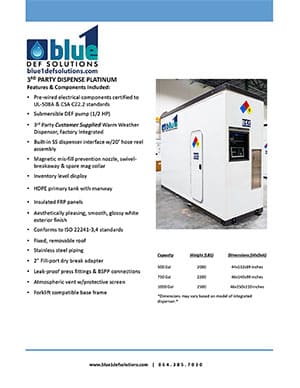
3rd Party Dispenser Platinum Spec Sheet
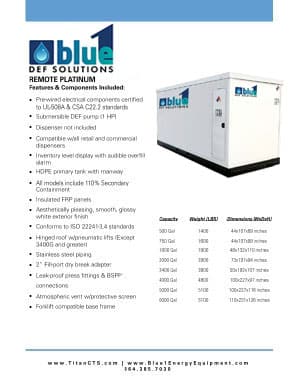
Remote Platinum Spec Sheet
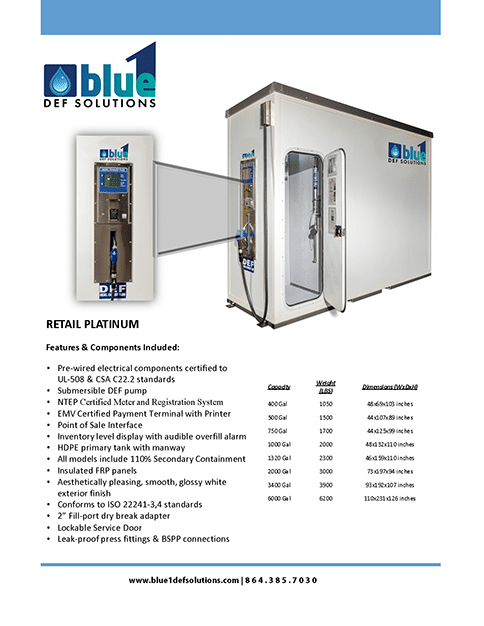
Retail Platinum Spec Sheet
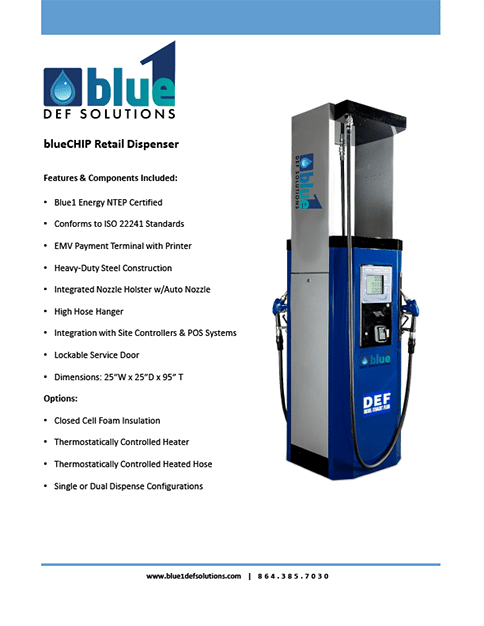
blueChip Retail Dispenser Spec Sheet
Commercial Products
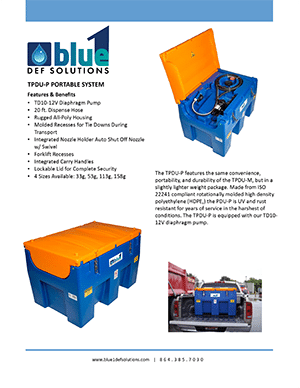
TPDU-P
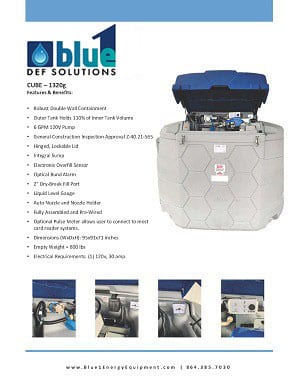
Cube 1320g Spec Sheet
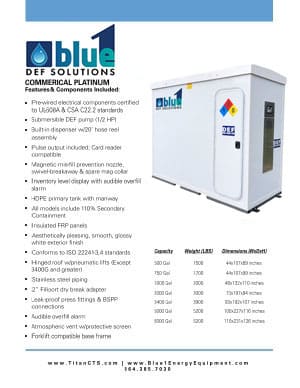
Commercial Platinum Spec Sheet
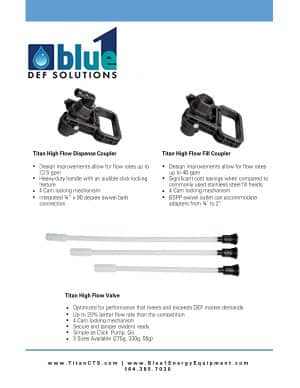
Couplers and Valves Spec Sheet
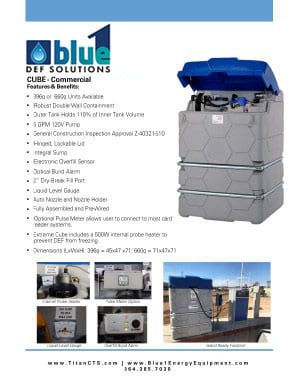
Cube Commercial Spec Sheet
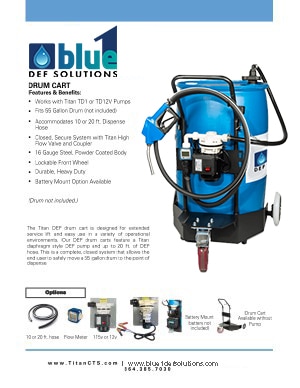
Drum Cart Spec Sheet
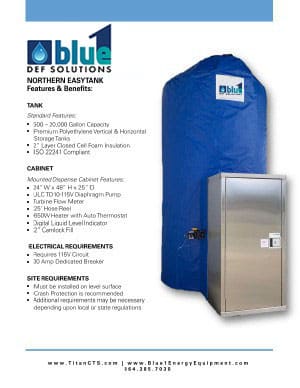
Northern Easy Tank Spec Sheet
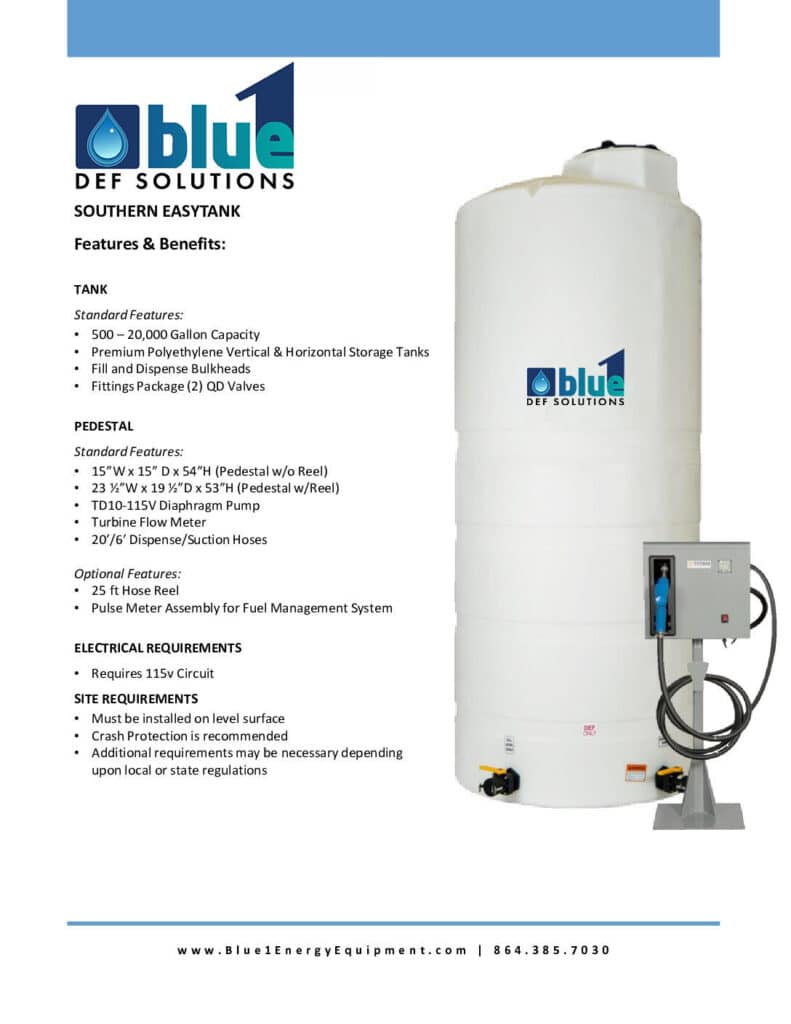
Southern Easy Tank Spec Sheet
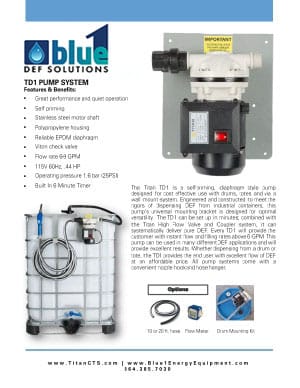
TD1 Spec Sheet Spec Sheet
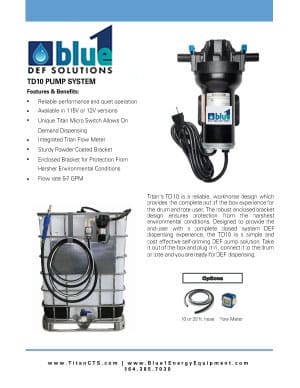
TD10 Spec Sheet
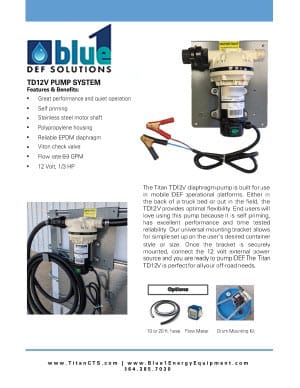
TD12V Spec Sheet
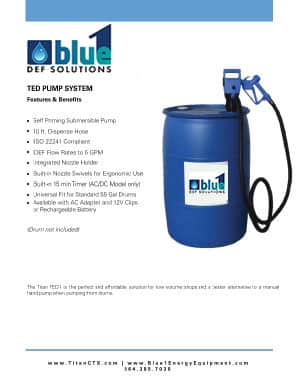
TED Pump System Spec Sheet
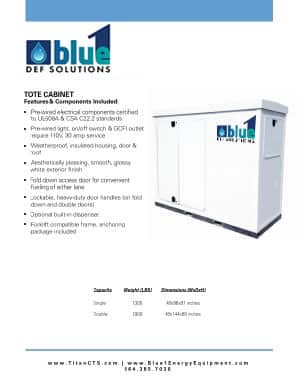
Tote Cabinet Spec Sheet
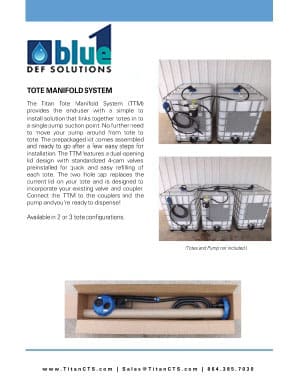
Tote Manifold System Spec Sheet
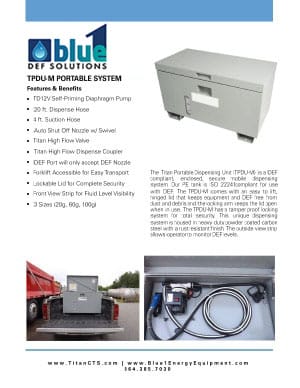
TPDU-M Spec Sheet
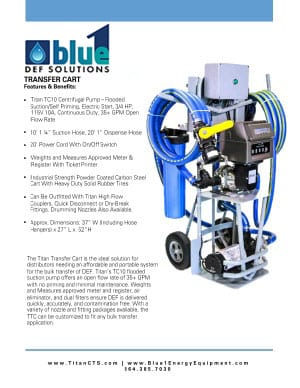
Transfer Cart Spec Sheet
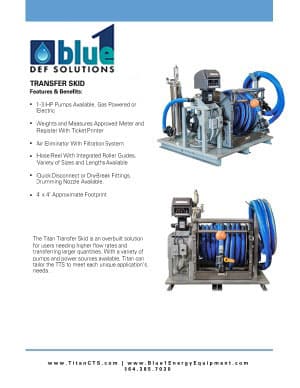
Transfer Pump Skid Spec Sheet
FAQ's
Diesel Exhaust Fluid is a high quality chemical solution comprised of 32.5% aqueous urea (ammonia) and 67.5% de-ionized water for specific use in SCR systems to reduce NOx emissions.
No, DEF is classified as nonhazardous, nontoxic and nonflammable.
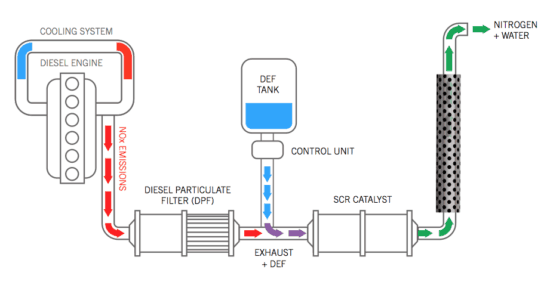 SCR uses DEF (Diesel Exhaust Fluid) to reduce NOx (nitrogen oxide). Small quantities of diesel exhaust fluid (DEF) are injected into the exhaust upstream of a catalyst, where it vaporizes and decomposes to form nitrogen and water vapor.
SCR uses DEF (Diesel Exhaust Fluid) to reduce NOx (nitrogen oxide). Small quantities of diesel exhaust fluid (DEF) are injected into the exhaust upstream of a catalyst, where it vaporizes and decomposes to form nitrogen and water vapor.
DEF purity is essential. A key consideration in maintaining DEF purity and quality is the type of dispensing system used. CLOSED system containers have a valve coupling system that seals the container opening on drums and totes (IBC) to prevent debris, dirt, bugs, etc from entering the container and contaminating the DEF. With a Closed system, the liquid in the container is sealed and secure throughout its life cycle. OPEN system containers are drums or totes that do not contain a valve insert in the container’s opening, potentially allowing dirt or debris to enter the container and contaminate the DEF. Titan’s valve and coupler systems offer a safe and secure Closed system for storage and transfer of DEF.
A 32.5% solution of DEF will begin to crystallize and freeze at 12 °F (-11 °C). Freezing does not harm the quality of the DEF solution. Upon thawing, DEF will perform as required.
DEF is non-toxic, non-flammable, and non-hazardous. If you come in contact with it, treat as follows: Skin: Flush with cool water. Wash with soap and water. Obtain medical attention if irritation persists. Eyes: Flush with cool water. Remove contact lenses, if applicable, and continue flushing. Obtain medical attention if irritation persists.
On the cold side, DEF quality is not affected by freezing. However, at elevated temperatures DEF shelf life can be reduced. The normal shelf life for DEF is two years, and it will be reduced if the product is routinely allowed to get over 100 °F.
DEF is corrosive to copper, brass, aluminum and carbon steel. Only approved materials, as listed in the ISO 22241 standards, should be used in contact with DEF. Examples of approved materials are stainless steel and high density polyethylene.
Yes, the equipment used to handle the dispensing of DEF must be compatible with the ISO 22241-3 specification. If petroleum type pumps and dispensing equipment are used the DEF may become contaminated, thus potentially harming your SCR system. All DEF equipment should be used strictly for dispensing DEF. All Titan products comply with ISO 22241 specifications.
The use of poor quality DEF could result in the following: clogged DEF injectors, formation of gummy deposits, reduced surface area of the catalyst. Any of these issues could lead to the vehicle reducing power output and/or costly repairs.
Vehicles will be equipped with a DEF gauge on the dash to alert the driver of the fluid level. If the level becomes low, an alert will let the driver know the DEF needs to be replenished. If the driver runs out completely, the vehicle power will be reduced to encourage the operator to refill the DEF tank. Once the DEF tank is refilled, normal power levels will be restored to the vehicle.
DEF is consumed at a rate of 2-3% by volume to diesel consumption. For every 100 gallons of fuel, 2-3 gallons of DEF will be used. For example, a vehicle traveling 100,000 miles a year, getting 6 mpg, would use 417 gallons of DEF.
No, it is not a fuel additive. It is sprayed into the exhaust stream where it reacts with the NOx in the SCR system to form nitrogen and water. DEF should never be added to the fuel tank. There is a separate tank for DEF on SCR equipped vehicles.
The Blue1 sales team can review your application and recommend the most practical equipment to meet your specific needs. We specialize in Purpose-Built systems. Your needs may range from a manual drum pump, with hose and nozzle, to a more robust diaphragm or centrifugal pumping system, or even a more complete dispensing station including bulk storage. Give us a call at 864-385-7030 and let us review your needs.




